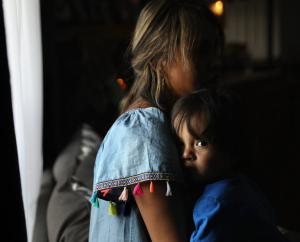
The Psychic Toll of Trump’s DACA Decision
by Karla Cornejo Villavicencio, Ph.D candidate.

“I did not raise you to cry,” my father would say when I fell off my bike, as he poured rubbing alcohol on my bloody 6-year-old knees. Not hydrogen peroxide — alcohol. Whenever I cried, which was usually when I did not get an A on a math test or saw a lost-dog poster or read about Anne Frank, my parents, immigrants from Ecuador, handed me a mirror to observe myself. They wanted to desensitize me to my own tears, to line my small heart with bulletproof glass, even if doing so meant making me hate my own weakness.
Undocumented life in America is hard on the mind and body. Poverty, precarious employment, poor access to health care, discrimination and trauma from the migration itself often lead to disorders like depression, anxiety and post-traumatic stress disorder. Access to mental health treatment is scant, the demands of simply surviving are overwhelming, the fear of being discovered discourages people from seeking care, and the stigma of mental illness has perpetuated a culture of silence that only worsens the suffering.
Enter the Trump administration. With its aggressive hunt for undocumented people like my family — capped off by the announcement on Tuesday that the president plans to end the Deferred Action for Childhood Arrivals program for the so-called Dreamers — the administration has placed new emotional and mental burdens on an already deeply stressed community. Thanks to DACA, I was able to get a state ID, land my first paid office job and fly without fear for the first time in my life. My best friend from college is in DACA, as are the children of nearly everyone I have interviewed for the dissertation I am working on. We know all too well people like the two young brothers from Maryland without criminal records who were deported after one of them, a soccer star, told immigration officials he had won a scholarship to college. Or the children on their way to school who filmed the detention of their parents on their phones while sobbing and screaming. Or the DACA recipient who hid in her closet as her father was arrested by armed ICE agents.
Some studies have found that the first wave of immigrants has a better mental health outlook than subsequent generations, which researchers say results from traditional family networks and values, as well as “lower expectations for success.” But such conclusions betray a misunderstanding. As a graduate student, I have interviewed dozens of undocumented people, including first-wave adults. Most of them speak of symptoms that we might call anxiety, depression and PTSD, even if the subjects themselves do not use this language, and have less familiarity with diagnostics and less access to treatment than their American-citizen children. These studies are from a more innocent time.
For the complete article visit:
